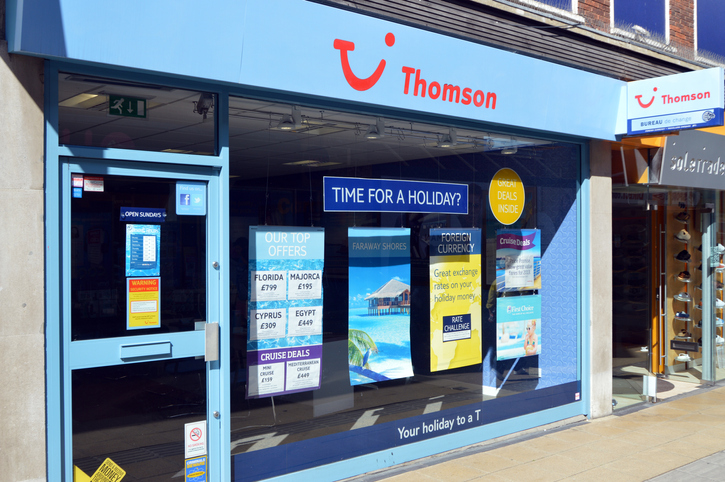ii view: TUI sees a take-off in customer departures
Revenue up, losses down and a return to positive cashflow. We assess prospects.
12th August 2021 16:06
by Keith Bowman from interactive investor
Revenue up, losses down and a return to positive cashflow. We assess prospects.

Third-quarter results to 30 June 2021
- Revenue up 805% to €650 million from Q3 2020
- Adjusted loss halved to €670 million
- Available liquidity as of 9 August 2021 improved to €3.1 billion
- Net debt down 7% to €6.35 billion
- Cashflow positive quarter
ii round-up:
A ramping-up in operations helped integrated holiday company TUI (LSE:TUI) to report its first cashflow positive quarter since the start of the pandemic.
Just over 875,000 customer departures compared to 159,000 in the prior second quarter boosted the inflow of customer deposits. A further 1.5 million summer bookings were added since early May, bringing its booked summer 2021 season to 4.2 million customers.
TUI shares were little changed in UK trading, leaving them up by around 69% since pandemic induced market lows back in March 2020. Shares for British Airways owner IAG (LSE:IAG) are up by just 25%. Shares for low-cost operator Ryanair (LSE:RYA) are up by over 90%.
The quarterly loss of €670 million proved to be worst than broker Morgan Stanley had forecast, hindered by €125 million of costs as operations were increased. Management expectations for capacity of 60% at its summer peak compared to the pre-pandemic 2019 were below its earlier guidance of 75%. This was not a surprise according to Morgan Stanley given the continued restrictions around international travel, particularly in the UK.
Group liquidity of €3.1 billion as of early August was up from €1.7 billion back in early May, boosted by asset sales including 19 hotels. Net debt fell 7% to €6.35 billion. It previously extended the maturity of its revolving credit facility totalling €4.7 billion by two years to July 2024.
ii view:
TUI is a German headquartered integrated holiday company. Its operations include 1,600 travel agencies and a collection of online booking portals. It also operates five airlines with around 150 aircraft, over 400 hotels and 15 cruise liners. With so many factors outside of management’s control potentially influencing performance the holiday business can be a volatile and high-risk industry in which to invest. The global pandemic of 2020 has tested the tourism industry and TUI beyond anything ever suffered.
For investors, the return of bookings and an increase in its operations is clearly good news. Nearly 80% of its hotels were open at the end of the quarter. Reduced costs remain a focus and its liquidity has increased. A digital strategy and an expansion in the use of its app is also not to be overlooked.
But travel uncertainty remains high. Concern for the delta Covid variant should not be dismissed and testing is adding an additional cost burden for travellers. Group debt since the start of the pandemic has increased, along with equity dilution. For now, and with the consensus analyst estimate of fair value standing at 305p per share, investors may wish to wait for more evidence of recovery before acting.
Positives:
- Diversified asset portfolio
- Pursuing a reduced cost base
Negatives:
- Elevated debt
- Ongoing pandemic uncertainty
The average rating of stock market analysts:
‘Sell’
These articles are provided for information purposes only. Occasionally, an opinion about whether to buy or sell a specific investment may be provided by third parties. The content is not intended to be a personal recommendation to buy or sell any financial instrument or product, or to adopt any investment strategy as it is not provided based on an assessment of your investing knowledge and experience, your financial situation or your investment objectives. The value of your investments, and the income derived from them, may go down as well as up. You may not get back all the money that you invest. The investments referred to in this article may not be suitable for all investors, and if in doubt, an investor should seek advice from a qualified investment adviser.
Full performance can be found on the company or index summary page on the interactive investor website. Simply click on the company's or index name highlighted in the article.